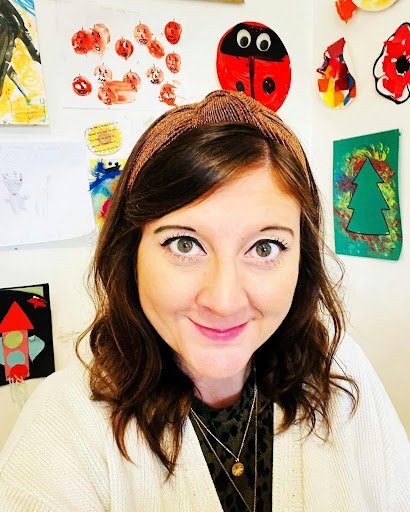If you have a child who was recently diagnosed with ADHD or autism, you may be left wondering, what now? How can I support my neurodivergent child? Or if you suspect your child may be neurodivergent but you’re not sure how best to support them, you may be wondering where to begin!
Julia Gudinchet is an an autism/neurodivegency consultant with 18 years experience and founder of Sunflower Autism Consultancy. A support service for parents of neurodivergent children. Using her expertise she shares how you can support your neurodivergent child.

Hi! I’m Julia Gudinchet, and my passion is supporting neurodiverse families.
For the last 18 years, I have helped families both in the home and community, as well as in schools, residential settings and supported living provisions. I also have a Masters in Autism Studies and am qualified to assess autism using the ADOS assessment.
In 2019, I launched Sunflower Autism Consultancy. My own parent support service helping families with neurodivergent children worldwide. Through 1:1 online support workshops, live Zoom groups, extra support membership and courses.
Following childhood diagnoses of dyspraxia, dyslexia and dyscalculia, I was finally diagnosed with ADHD – at age 38! I’m also mum to two children, one with ADHD, so I bring a varied perspective to help your neurodiverse family to flourish.
Getting a diagnosis for your neurodivergent child
There are three main routes to accessing an assessment and diagnosis for your child in the UK. The first is via the NHS. The second is accessing private support directly. Finally, the third is via the ‘right to choose’ system.
Support from the NHS
To go the NHS route you can either go straight to your GP or via your child’s school. My advice is to go via the school if you can. In the first instance arrange a meeting with your child’s class teacher. Explain any challenges you are having at home. Your concerns/worries are usually the best way to start a communicative and transparent way of working together. From there the school SENDCo may become involved. They may carry out an observation of your child and then get in touch with any strategies/feedback they feel is appropriate. Jump to how can school support us
Once the school are involved they will start to collect evidence regarding your child’s challenges and areas they need support with. I suggest you do the same for example; write a diary of meltdowns, keep writing down examples of challenges they experience in their daily life e.g. transitions, eating challenges, sleeping issues, sensory difficulties etc. When you and the school have enough evidence the SENDCo can make a referral to your local developmental paediatric service. This involves the school filling out paperwork outlining your child’s challenges and support at school. They will ask you to fill in a section about the difficulties at home. This is where your diary and notes with examples will be useful. If the referral is accepted the assessment process (also known as the assessment pathway) will begin.
The exact process will depend on your local authority as it is different in each county in the UK. Usually it will begin with an appointment with the developmental paediatrician for you and your child to explain your concerns. Bear in mind you may need to attend several appointments before a diagnosis is given. This can take time, especially if there is evidence of more than one neurotype. For example if your child ticks the boxes for both autism and ADHD, the process may be more lengthy than a clear cut case of ADHD.

Getting support privately
Going the private route is also a valid option given the current waiting times for assessments. Contrary to myths a private diagnosis is completely valid and will lead to accessing support from schools and local authorities as long as they follow the NICE guidelines.
This involves you contacting the organisation directly and explaining your concerns to them. They will then make several appointments with you and your child to assess their needs. This may include; an initial screening meeting with the psychologist, your child being observed at school, your child having an assessment with the psychologist at their office and you being interviewed as well. This can also be a lengthy process and can cost between £1500-£4000.
A good idea is to ask other parents for personal recommendations to ensure NICE guidelines are followed. Ensure the assessor is a qualified clinical psychologist accredited by the British Psychological Association. If an organisation uses the word ‘test’ instead of assessment be careful. This may not be a valid assessment but will still cost the same!
Right to choose
The ‘right to choose’ route is accessing a private assessment via NHS funding. Go to the GP and explain you would like to be referred for an assessment for your child, explain you would like to access the ‘right to choose’ system. You should be offered a choice of clinical providers in the area who your GP can refer you to. This is another time where the diary and examples you have written down will be helpful. The waiting times via this route can be shorter, but are still usually around 6-9 months long.
What type of professional support is available?
Once you have a diagnosis or you are on the pathway for assessment you will be thinking about the types of support available to you. Financial support may be available, you can check your eligibility DLA (Disability Living Allowance).
Some local authorities have support available through organisations such as Early Help or you may be referred to a parenting course. These can be great for some families. For others they are very generic, and often not up to date on the nuances of neurodiversity. For example if you have a child who is autistic with a PDA (Pathological Demand Avoidance) profile they will need a specific approach. The generic autism advice given by such professionals is often not appropriate. For this you may need a referral to a mental health service such as CAMHS.
Whilst some feedback around these types of service is not always positive it’s important to remember that each individual child and each family has different needs. I would recommend giving such services a chance as often it’s dependent on the specific professional you come into contact with. If you have the option of paying privately for support it can be more specialised to your needs and an individualised approach is better where possible.

Professionals who can offer support
Types of professionals who can help are:
Occupational therapists to help with sensory challenges
- Speech and Language Therapists to help with speech, language, processing difficulties and general communication challenges.
- Counsellors
- Art therapists
- Play therapists
- Clinical psychologists and psychiatrists can provide 1:1 or family support. Neurodiversity consultants/professionals can also offer sessions (often online) with parents to help their understanding of their child’s neurotype. They can offer strategies to help support behaviour and guide you through the challenges of parenting a neurodivergent child. This is a service I offer at Sunflower Autism Consultancy.
Whatever the support you are looking for my main tip is to ensure the professional is an expert in your child’s specific neurotype e.g. ADHD, PDA, dyslexia etc.
How can school support you and your neurodivergent child?
If the school SENDCo agree your child may be neurodivergent and needs an assessment and support they can put them on the SEN register. This is the register of children with additional needs in the school.
They should also then implement an inclusion plan (the name of this can vary school to school). They outline support and strategies that can help your child on a daily basis. For example, attending an inside lunch club instead of playtime, extra movement breaks, their own desk, sensory room visits etc.
Once in place this plan should be monitored regularly by the school. I recommend keeping in touch with the class teacher and SENDCo regularly via email, phone and meetings. This ensures the strategies are still effective and being implemented on a daily basis.
If your child is really struggling even with these types of support in place the school may be finding it difficult to meet their needs. They may bring external agencies in to try and help. Eventually the school may suggest applying for an EHCP (Education, Health and Care Plan). This process can be long and complex. I recommend doing research, finding an advocate to help where possible and finding an organisation who can explain the process to you. One example is IPSEA.
Other types of support available
There are many more resources available to parents now given the scope of the internet. Websites such as the ADHD Foundation or PDA Society can provide useful information. Other resources include social media communities such as Facebook groups, professional Facebook pages, and Instagram accounts. There are also many books, podcasts, courses and Youtube channels available for parents online. Again personal recommendations from other parents of professionals are a good idea here. In my own Facebook group I offer strategies, advice and a place to ask questions and connect with other parents in the same boat.
In my experience one of the most important ways to support your neurodiverse child is for them to understand, accept and come to terms with their neurodiversity/diagnosis. This helps them to accept who they are, discover others like themself and find a sense of acceptance and over all well being.
Where to find Julia
If you would like to speak to Julia in more detail, here is the information for when you can find her. If you have gone through any of these experiences, let us know in the comments below.
Website: Sunflower Autism Consultancy
Facebook: Sunflower Autism Consultancy A private group offering support to parents of neurodiverse children is available on Facebook here.
Instagram: Sunflowerautism


Great info! Thanks for sharing!
It’s always great when Mothers can use their experiences to help others
All good advice. Unfortunately many schools don’t have the knowledge and understanding to understand what parents are describing to them and can pass off as emotional or behavioural issues or separation anxiety.
I’d also like to add Occupational Therapists to your list of helpers. Crucial if you have a child with sensory integration issues.
Thanks Lucy, that is a really good point about the school, and their knowledge, it can be a big limitation if they don’t have the correctly trained staff or support systems in place.
Sophie